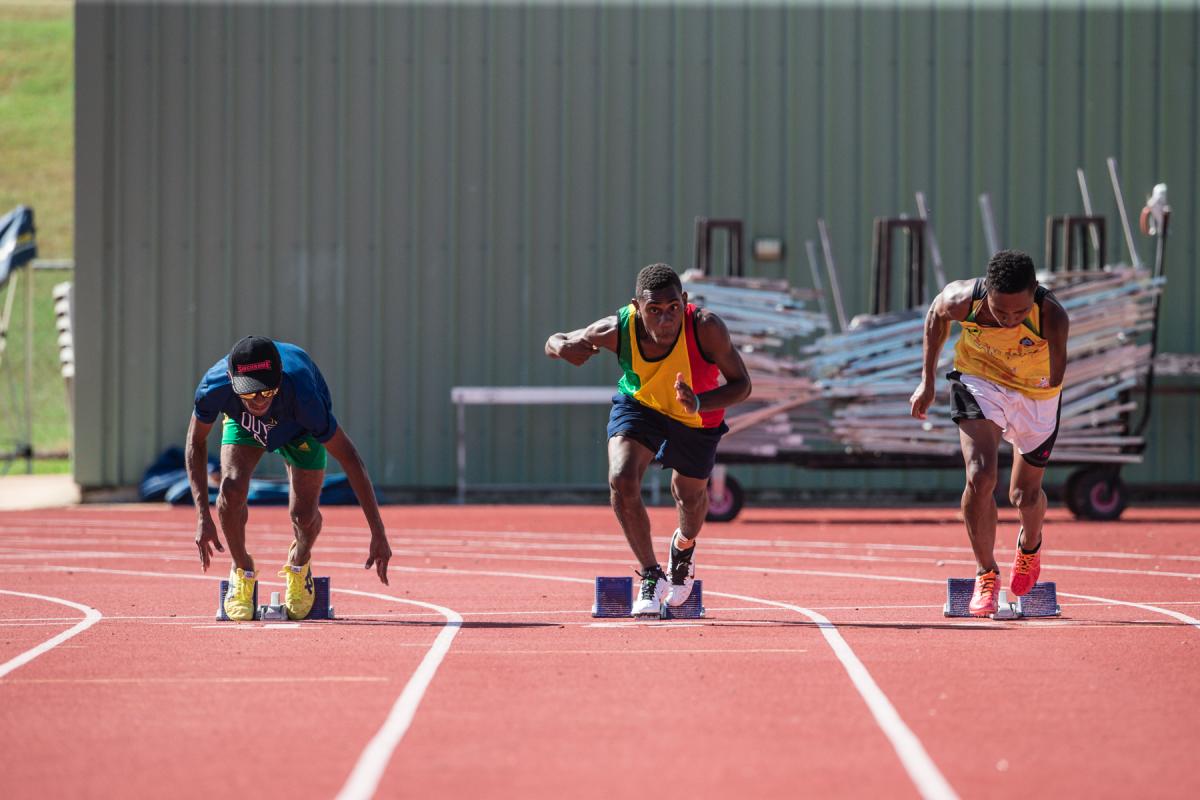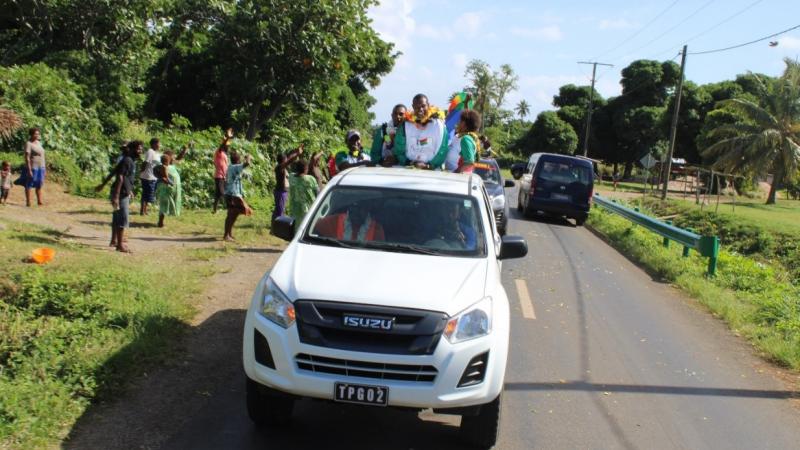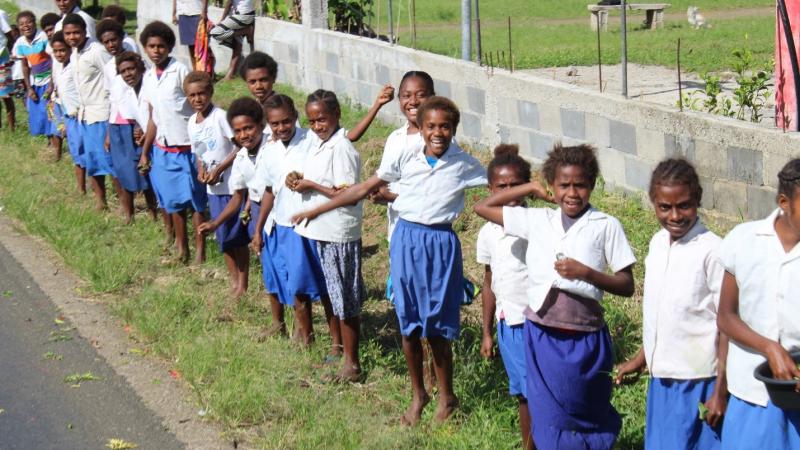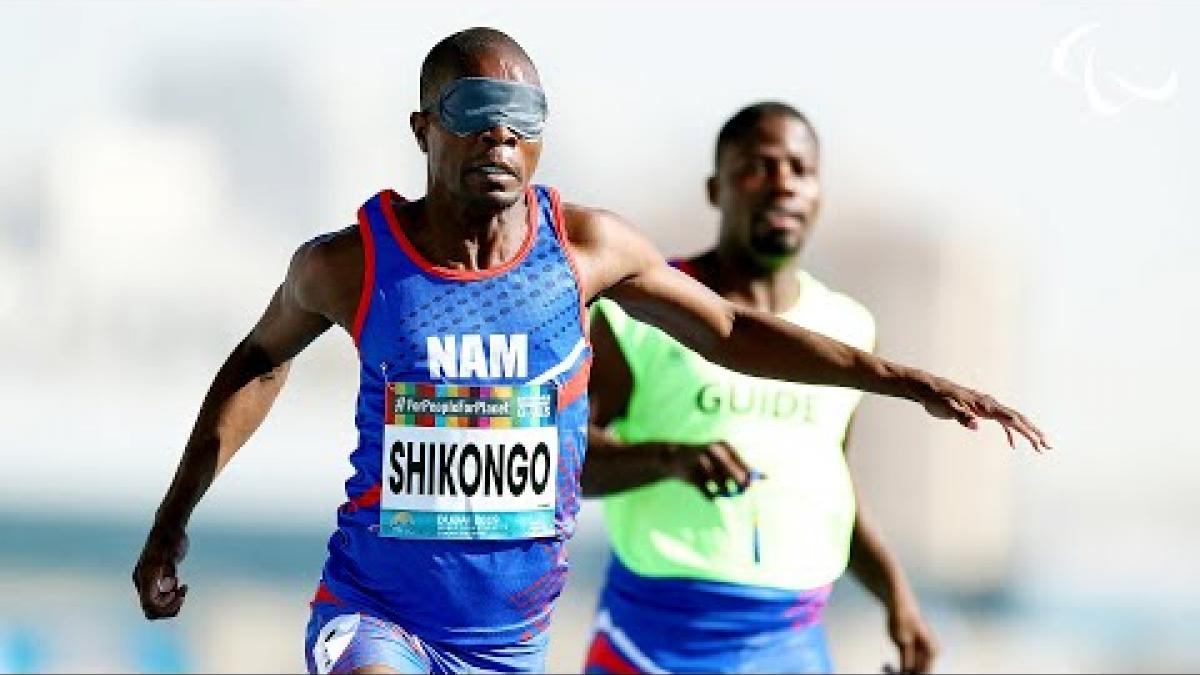Para sport inspires the rite of passage for Vanuatu’s Mathias Nakat
Born with cerebral palsy, Nakat left school in grade four after relentless bullying and constant name calling 06 Oct 2020
When Mathias Nakat was selected to represent Vanuatu at the Arafura Games last year, the moment signified more than the beginning of his representative sporting career.
The moment signified the beginning of his transformation from a boy to a man and a cultural rite of passage for Ni-Vanuatu men.
Born with cerebral palsy, Nakat left school in grade four. The relentless bullying, the nasty jokes and the constant name calling made him so ashamed of his impairment, he would refuse to see anyone outside of his family, even when visitors would stop by.
In 2017 and with much resistance, a then 17-year-old Nakat was taken to a Vanuatu Paralympic Committee (VPC) Talent Identification Day on his home island, Tanna by VPC coach and family friend Timothy Loughmann.
It was only moments into the session that a twist of fate saw his life take a different course.
“The moment he ran, I knew we had a potential athlete in the making,” said Oceania Paralympic Committee Project Coordinator Chris Nunn, who was high performance coach for the Paralympics and Olympics funded by the Agitos Foundation.
Nunn, also a former Australian Para athletics team head coach with a history of success at the Paralympic Games, saw something in Nakat that no one had ever seen before.
“His times were awesome. With the success at the trials, we asked him to become a member of our elite squad on Tanna.”
Soon training up to five days a week under Loughmann, Nakat’s times skyrocketed, as did his confidence. But what was most impressive was his dedication to see out his potential.
For Nakat, even getting to training can present its own challenges, but he is living proof that where there is a will, there is a way.
“Bus fares are a big issue for Mathias. So many times he had to walk long distances to training, and then home again. But rain or shine, he never missed a session,” said Nunn.
It wasn’t long before even his mother saw the positive impact on Nakat.
“I could see him changing. He was out of the house, getting fit. The squad encouraged him with their own stories of never giving up,” she said adding, “Earlier, we tried so hard to get him to participate in community activities or Church groups but his experiences at school or even just walking along the street made him afraid of the derision and thoughtless name-calling. But now he was smiling and talking. God sent the Para sport coaches to us.”
With his natural talent and his dedication to his new craft, it came as no surprise to his peers when he was selected to represent his country at the Arafura Games in Darwin, Australia last year.
The selection to Team Vanuatu at the Arafura Games also became symbolic of the next steps in his personal growth. Nakat had never left his family home. He had never been on a plane or even left his home town.
In Tanna, the small island in the south of the Vanuatu archipelago, culture and custom is the way of life; women mostly wear grass skirts and men wear sheaths.
And so, while his team selection signified his pure potential, it also presented a cultural opportunity.
“In our custom, when a boy leaves his family home, he is shaved in public by his kastom patron, with his community present to witness this important step of transitioning from a boy to a man,” Loughmann said.
More than 40 people gathered to watch as Vanuatu’s Attorney General gave Nakat a clean shave. His grandfather, former Prime Minister Joe Natuman was present and spoke about the significance for Nakat, personally and culturally.
As Nakat was given his uniform, a shy smile emerged and the young boy who dropped out of school in grade four had found himself as well as a pathway to follow. At the Arafura Games last year, Nakat ran in the Oceania T37-38 relay, to win silver for his country.
Winning for Nakat was the journey and gaining crucial experience that will shape a prosperous career. Nakat has since competed in Australia for domestic competition. He also took part in an Agitos Foundation training camp in 2019 in Darwin, Australia, before competing at the Arafura Games and he is now training hard ahead of Tokyo 2020.
Georges Langa from the VPC said that stories like Nakat’s are not unusual in the Pacific Islands.
“It’s why so many Ni-Vanuatu living with an impairment do not finish school. Then without an education, they find gaining employment very difficult.”
His story is one that is now empowering other people with disabilities in Vanuatu to discover their own talents and find a way forward.

 Facebook
Facebook
 Instagram
Instagram
 Twitter
Twitter
 Youtube
Youtube




